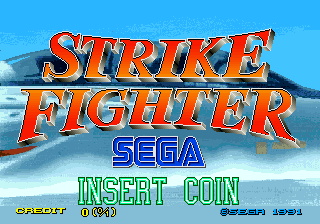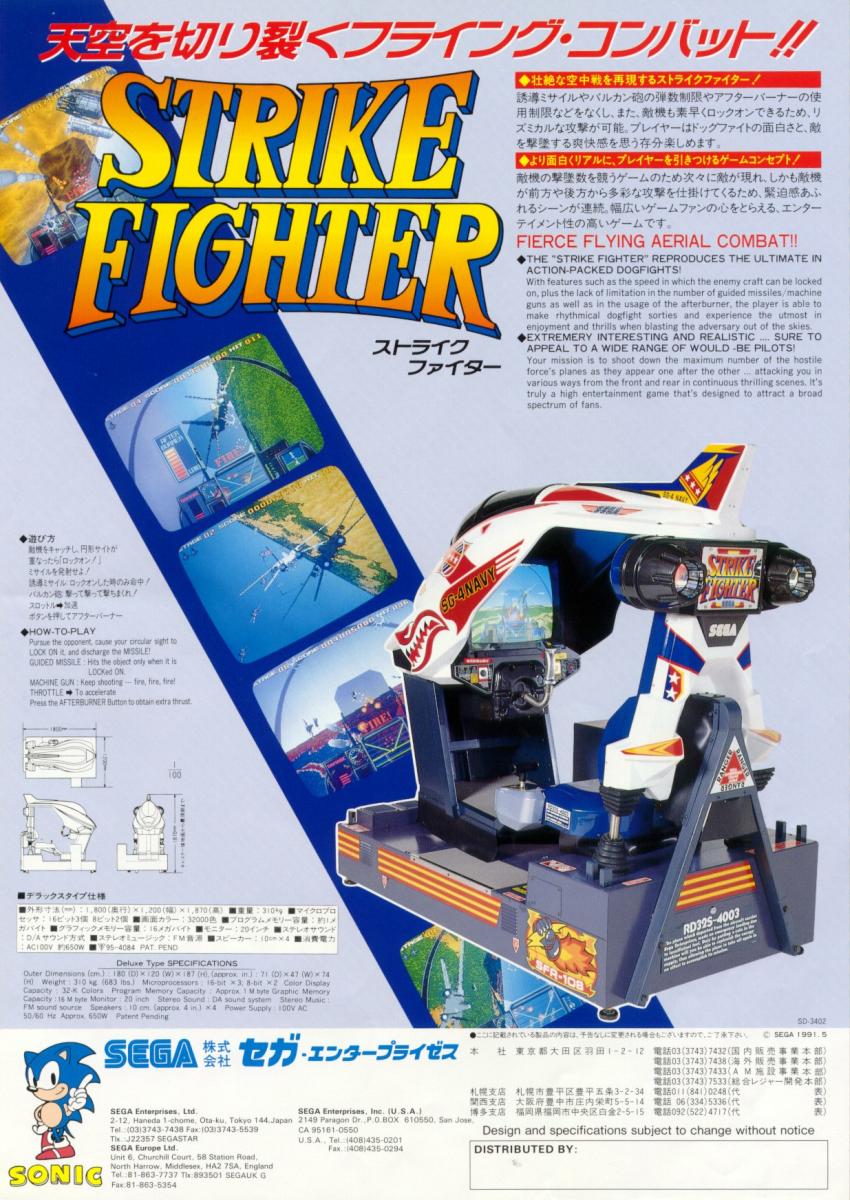Difference between revisions of "Strike Fighter"
From Sega Retro
| Line 10: | Line 10: | ||
| genre=Shoot-'em-Up | | genre=Shoot-'em-Up | ||
| releases={{releasesArcade | | releases={{releasesArcade | ||
| − | | ybd_date_jp=1991 | + | | ybd_date_jp=1991-06 |
}} | }} | ||
}} | }} | ||
Revision as of 11:36, 12 August 2019
| Strike Fighter | |||||||||
|---|---|---|---|---|---|---|---|---|---|
| System(s): Sega Y Board | |||||||||
| Publisher: Sega | |||||||||
| Developer: Sega AM2 | |||||||||
| Genre: Shoot-'em-Up | |||||||||
| Number of players: 1 | |||||||||
|
This teeny-tiny article needs some work. You can help us by expanding it.
Strike Fighter (ストライクファイター) is an arcade game released for Sega Y Board hardware in 1991. It is a sequel to G-LOC: Air Battle, which itself is now seen as a spin-off of the After Burner franchise.
Gameplay
Strike Fighter, like G-LOC primarily takes place from a cockpit view, where the player is tasked with shooting down enemy planes (while making sure not to be shot down themselves). Also like G-LOC, the game pans out to a third-person perspective if an enemy is on your tail. The major difference between the two is that whereas G-LOC uses a goal-based mission system, Strike Fighter's levels are similar in design to After Burner's, simply finishing when the player reaches a certain distance.
Versions
Strike Fighter saw most of its content re-branded as After Burner III for the Sega Mega-CD. The main difference between the two from a gameplay perspective is that After Burner III always gives users the option of playing from a third-person perspective. Strike Fighter on its own has not been ported to any home consoles.
Promotional material
Physical scans
| Y Board, JP | ||||
|---|---|---|---|---|
References
| Strike Fighter | |
|---|---|
|
Main page | Comparisons | Credits | Magazine articles | Reception
| |



